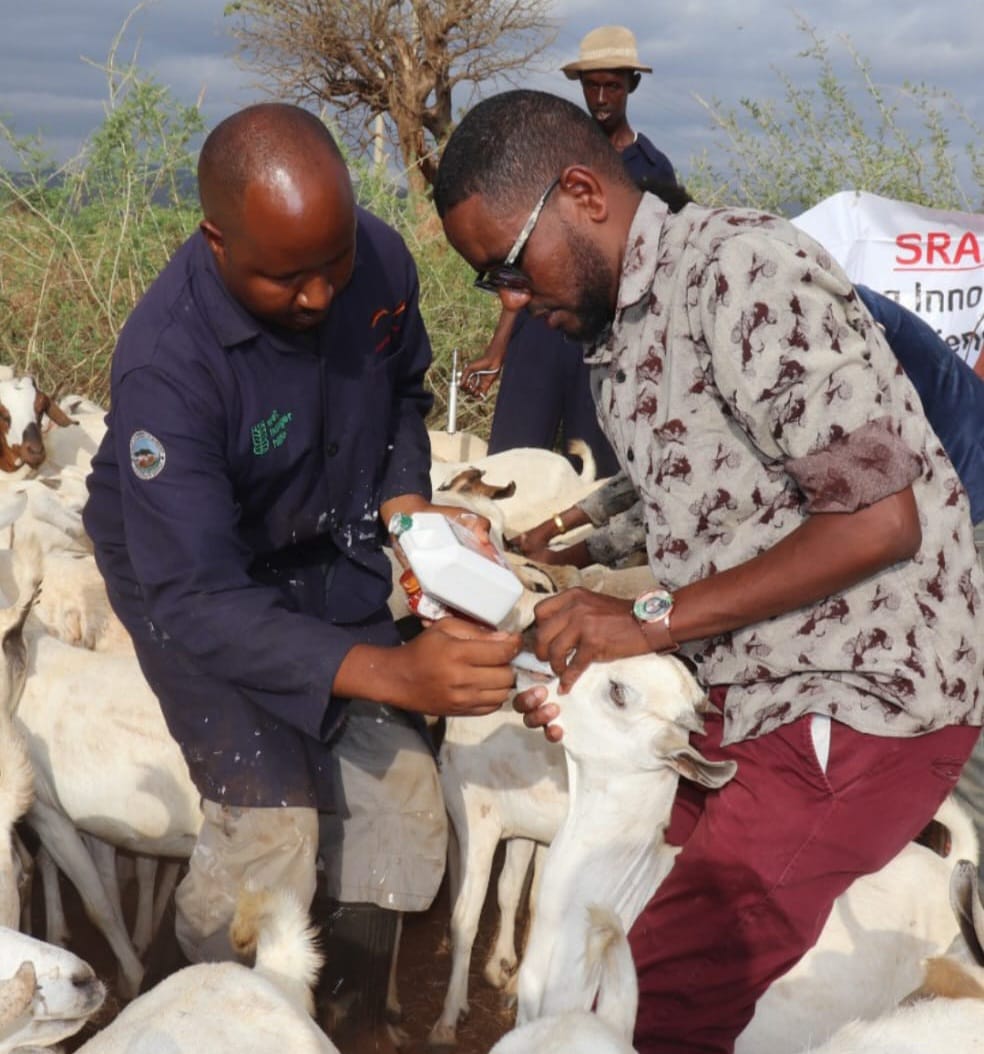
When drought swept across Marsabit County in 2022, the toll was catastrophic. In the villages of Antut and Qoloba in Moyale Sub-county, entire livestock herds were wiped out, leaving many households with no source of food or income. Children, the elderly, pregnant, and lactating women were most at risk of malnutrition. As desperation grew, so did the tension between the Borana and Gabra communities. The two communities have a history of inter-communal conflict where they raid each other’s manyatta and get away with livestock. Amid the despair, a restocking initiative brought a glimmer of recovery. To stabilize pastoralist livelihoods and support peaceful coexistence, Welthungerhilfe (WHH) through SRAPLEA 2 project and with funding support from the German Federal Ministry for Economic Cooperation and Development (BMZ), supported PACIDA to distribute small livestock specifically, drought-resistant hybrid goats to affected households. “Restocking was selected…
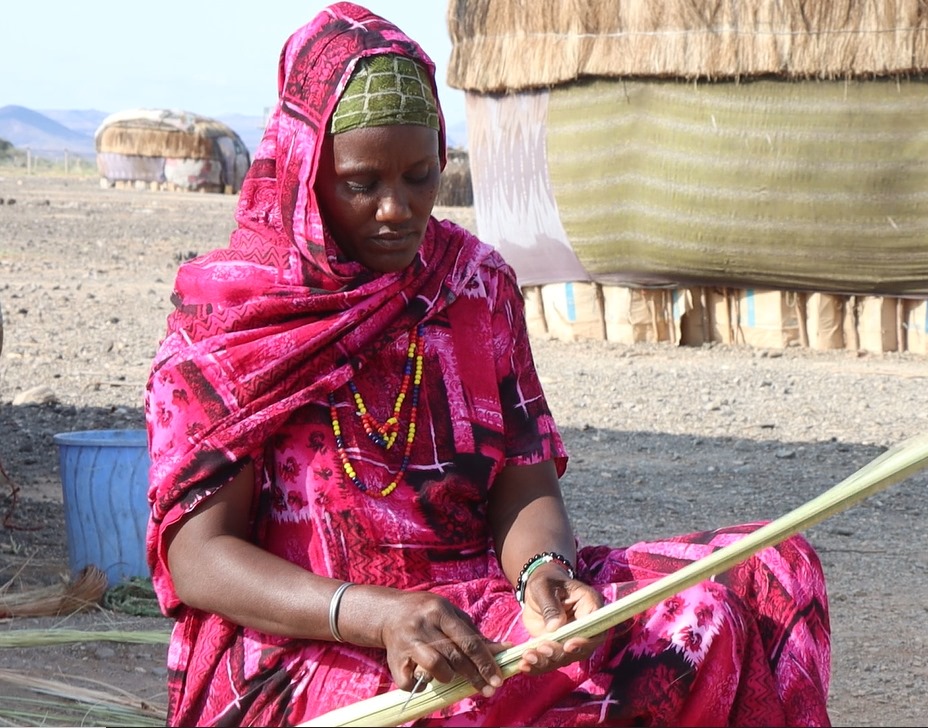
Kurfa Umuro Katelo, a 35-year-old resident of Malabot Centre in Marsabit County, lives with her family of five Chari village, North Horr, Marsabit County. This is a village that borne the brunt of the vagaries of climate change: from cycles of prolonged drought to devastating floods, Kurfa knows all too well. Between the month of May and June, Chari village saw the most devastating floods in recent history. Kurfa’s traditional house was totally destroyed. She watched helplessly as her belongings, including utensils and water containers, were swept away. Worse still, the floods claimed a significant number of her livestock kept just after her family had relocated the animals for grazing. “More than half of our livestock were swept away, only a few were rescued. This really broke every fighting spirit that we had since we were just starting to rebuild…
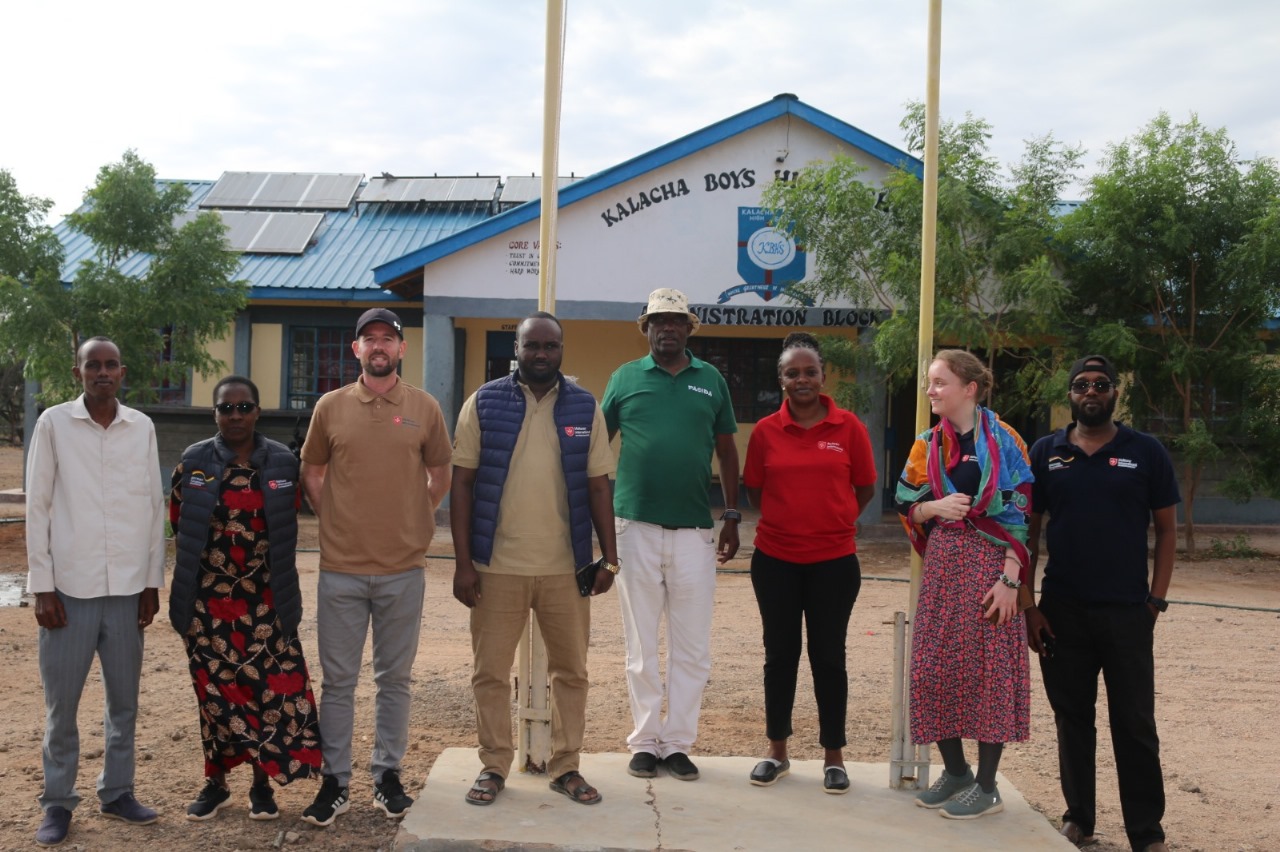
As part of his introductory visit to PACIDA and Malteser International (MI) projects, the newly appointed MI Country Director, Manuel Lackmaier, was joined by PACIDA’s Chief Executive Officer, Mr. Patrick Katelo, and the joint MI/PACIDA team for a field mission to Illeret. The team oversaw the distribution of emergency food aid during the third and fourth cycles, reaching 200 of the most vulnerable households. Each household received maize flour, cooking oil, salt, beans and maize. Manuel Lackmaier appreciated the ongoing partnership between the community and PACIDA which started in 2011. Katelo called on the community to continue maintaining peace between the Dasaanach and Gabras for development purposes in the area highlighting the peace accord signed weeks ago between the two communities. The team visited the Kutur model farm in Kalacha, Marsabit County. The farm empowers local pastoralists on good management…

After five consecutive failed rainy seasons, Kenya experienced heavy rains that brought devastating floods between October and December 2023. Damage to agriculture, livestock, and disruption of infrastructure increased food insecurity in affected counties which, according to the latest Integrate Phase Classification analysis, was already estimated to affect 2.8 million people in the ASAL regions. Out of those facing high levels of Acute Food Insecurity 2.3 million are classified in IPC Phase 3 - Crisis and nearly 500,000 are classified in IPC Phase 4 – Emergency. The situation has forced households to adopt various coping mechanisms as a mitigation measure for the food shortages. Limiting portion size at mealtimes, reducing the number of meals eaten in a day, and purchasing food items on credit were the most common coping mechanisms reported. Margaret is a 42-year-old mother of six and a hardworking…

Cash Transfer-Bridging the food gap Kame Mamo Dido, is a 32-year-old widow and a mother of 5 children. Her youngest child is barely 9 months old. She comes from Bubisa ward and she is a beneficiary of the unconditional cash transfer supported by CBM. Kame was chosen by the community as she is partially deaf and has her safety net negatively affected by the drought. In recent years, she has been living harmoniously with her in-laws who have always been supporting her and her children after the death of her husband. They have been rearing goats and diligently sharing the proceeds from the sale to sustain their livelihoods. They have been living as neighbours and looking after each other’s welfare.They formed this cooperation to mitigate social and economic risks. Due to the prolonged drought, their goats have largely perished due…

Thomas Edison, the great innovator behind the bulb, said: There’s a way to do it better. Find it! In its work with communities, PACIDA knew there had to be a better way to manage water usage. In a bid to improve water access through improved management practices, the Strengthening Community Resilience in Marsabit County (SCRMC), PACIDA received support from the Food for the Hungry Kenya (FH Kenya) with funding from USAID/OFDA introduced the first ever pre-paid communal water system in Marsabit County. The organisation identified four areas to benefit from this project: Shauri Yako and Saku in Marsabit Town. To date, two water kiosks have been installed with the pre-paid meters and the Kiosk at Saku is operational. This is how the technology works: 1. Every household in the targeted region is issued with a token (a small-chip powered gadget)…

Marsabit-Kenya: Seen as the worlds’ worst migratory pests, desert locust swarms descended in Marsabit, decimating crops and devouring grazing land, subsequently affecting the source of livelihoods in a community that depends on livestock for survival. Paulina, 52 years old and mother of six from Yomoo in Loiyangalani, knows too well the compounding effects of the desert locusts. “When the locusts came, they were flying all over, they landed on the grazing fields, feeding on the grass” says Paulina, adding that the locust infestation left nothing for her goats to feed on. The locust invaded her village earlier this year, around February 2020, just when they were recovering from the effects of floods that hit the region in the months of October and November of 2019. As the pastoralist communities in the region are recovering from the multiple threats, including the…

How Village Savings and Loans Concept is transforming businesses in Marsabit, Kenya Standing in front of her small mud retail-shop, Halima Adan, stares at her grandchildren play hide-and-seek, there are usually not many customers visiting her shop at this time of the day, so she takes time to engage with the kids. Life took a new turn for Halima, 50 years old-widow residing in Kinisa Village in the north eastern county of Marsabit, when she was given a business starter kit worth Ksh.15, 000 by Pastoralist Community Initiative and Development Assistance (PACIDA). She then took a loan of Ksh. 15,000 from Kinisa Village Savings and Loans Association (VSLA) to supplement her starter kit, and she started a provision shop. “Prior to venturing into the retail shop business, my only source of income was selling goat milk,” she says. “The income…
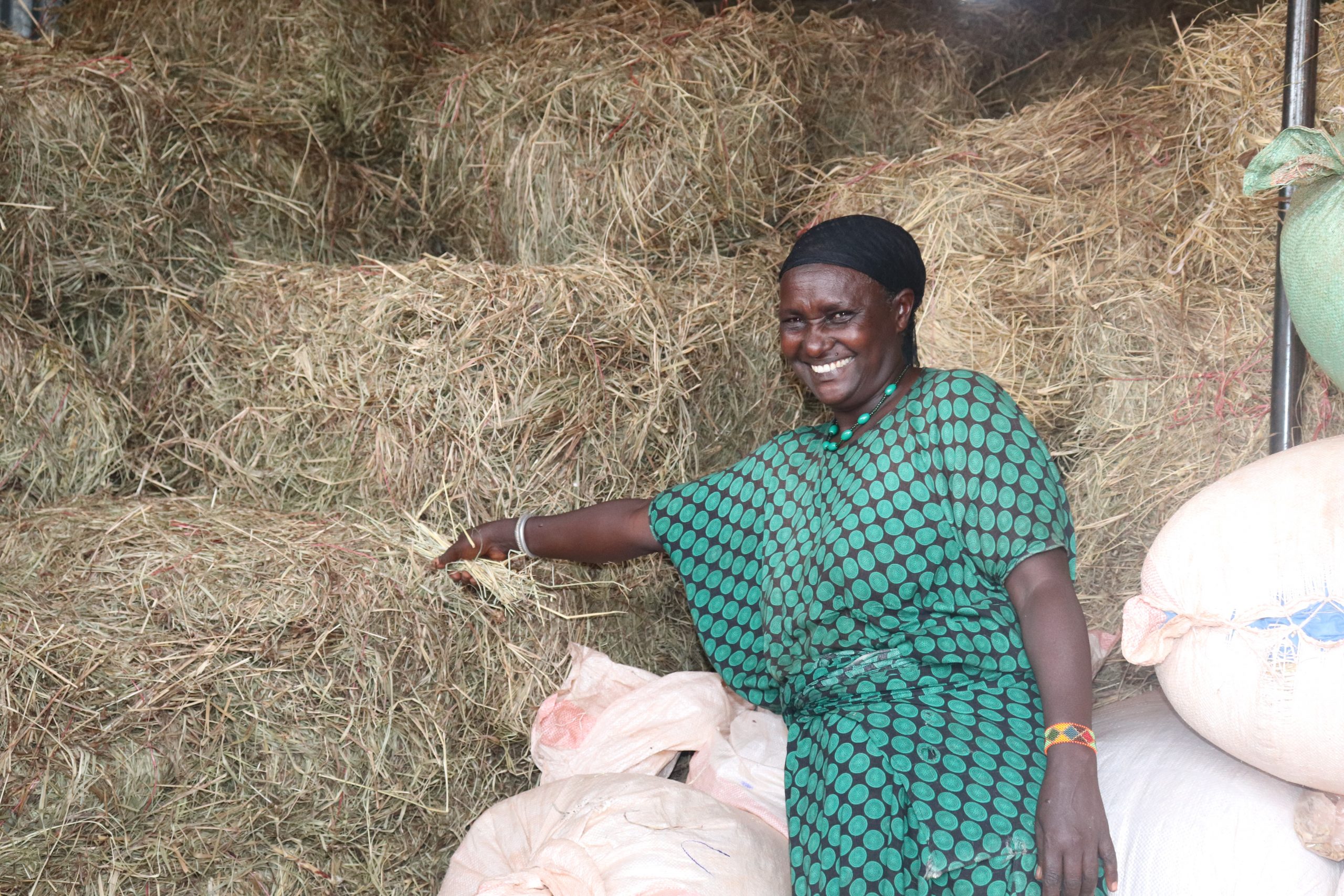
Jaldesa, Marsabit-Kenya: The front yard of Fatuma Molu’s home is a hive of activity. To the center left, green leafy kales sprout from a kitchen garden adjacent to a cows’ shed with mooing calves and a conspicuous silo-like structure with bales of fodder. At the bottom of a gentle slope beyond the compound lies a 10 acre fenced rangeland fodder- farm; visibly, a group of youth is preparing the land ready for another season of fodder planting. Fatuma, 55 years and a widow is the chairperson of Jaldesa Sauti Moja Group - a community-based organisation with 40 members (38 female and 2 male). The group has found passion in fodder farming and its members are now reaping the benefits of selling hay and grass-seeds. “We sell a bale of hay for Ksh 300 to non-members of the group and Ksh…
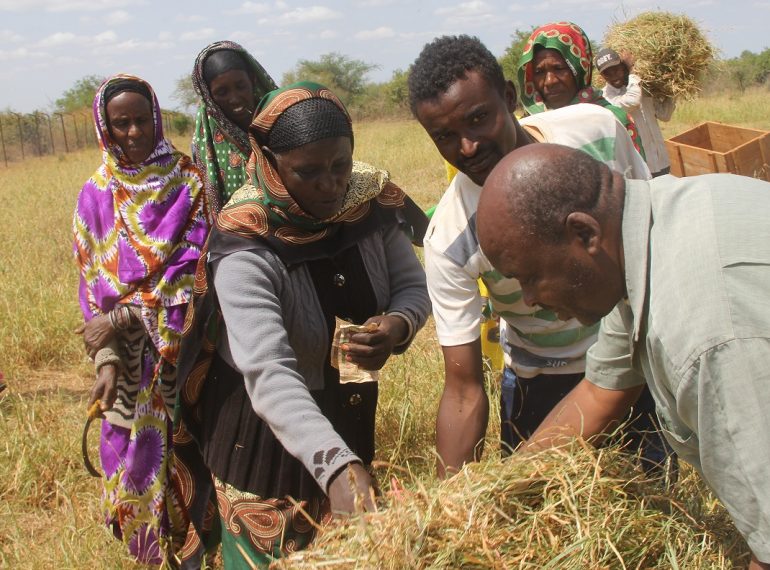
“We expect to harvest 60 bales of hay per acre from the rehabilitated rangeland. We are reaping double benefit by selling a kilo of grass seeds at 1,000 Kenya Shillings (10 US Dollars) while a bale of hay weighing 8kg is sold at 300 Kenya Shillings,” says Fatuma, chairperson of Jaldesa Sauti Moja fodder production group from Badassa. Jaldesa Sauti Moja Women group at Badassa was identified and supported through training, capital, fencing materials and grass seeds. This is one of the most proactive fodder production groups in Marsabit County with 40 active members who are very passionate about fodder production. A total of 675 kilograms of grass seeds were distributed to 115 willing members from three different groups. The group has already started harvesting seeds and hay. Fodder is available for sale and use during stress period. “We harvest…
Visit Us
Marsabit Kenya
pacida@pacida.org
Call Us
+254 (0) 20 265 6947
About Pacida
The Pastoralist Community Initiative and Development Assistance (PACIDA) is a development and relief organisation that empowers pastoralist communities through sustainable community-driven development interventions.
PACIDA was founded in 2008 by local scholars and development practitioners who were concerned about the huge and widening humanitarian needs, deepening vulnerabilities and huge development gap in its target region.
Contact us
Postal Address: PO Box 333-60500, Marsabit, Kenya.
Email: pacida@pacida.org
Hotline: +254 (0) 20 265 6947